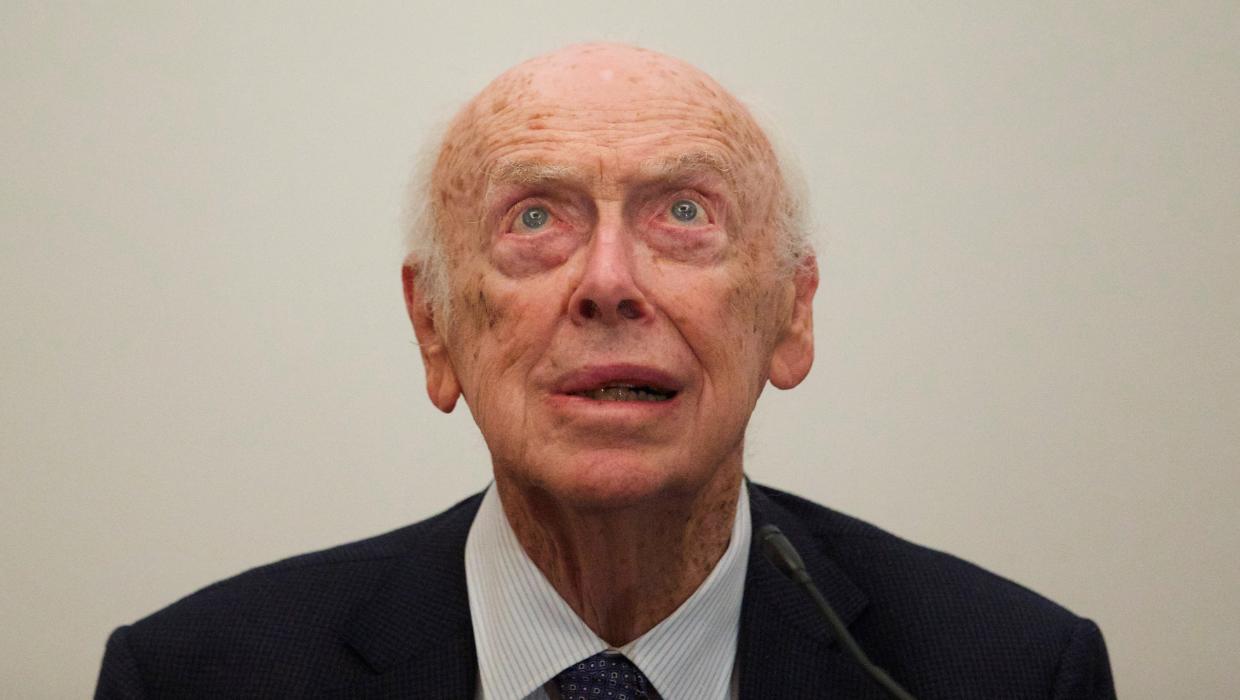Science
James Watson, DNA Pioneer, Passes Away at 96 After Controversy

James Watson, the scientist renowned for co-discovering the structure of DNA, has died at the age of 96. Watson’s groundbreaking work in 1953 alongside Francis Crick revolutionized the field of genetics, earning them the Nobel Prize in Physiology or Medicine in 1962. Despite his significant contributions to science, Watson’s later years were marred by controversy due to his controversial remarks on race and intelligence, which led to professional censure.
Watson’s journey began in 1920 in Chicago, where he developed an early interest in biology. After completing his PhD at the University of Chicago, he joined the Cavendish Laboratory in Cambridge, England, where he ultimately collaborated with Crick. Their discovery of the double-helix structure of DNA was a monumental moment in scientific history, laying the foundation for modern genetics and biotechnology.
Legacy of Innovation and Controversy
Watson’s accolades include not only the Nobel Prize but also his role as the director of the Cold Spring Harbor Laboratory in New York. Under his leadership, the laboratory became a leading center for genetic research. Watson’s contributions extended beyond the laboratory; he published several influential books, including “The Double Helix,” which offers a personal account of the DNA discovery.
Despite these achievements, Watson’s reputation suffered in the latter part of his life. His remarks on race and intelligence, deemed offensive by many, resulted in significant backlash from both the scientific community and the public. In 2019, he was stripped of honorary titles and faced considerable professional isolation. The Cold Spring Harbor Laboratory distanced itself from his views, reflecting a broader societal rejection of his controversial statements.
Watson’s legacy is complex. While he is celebrated as a pioneer in genetics, his later comments have overshadowed his scientific achievements. The scientific community remains divided on how to reconcile his contributions with his views, prompting discussions on ethics in science and the responsibilities of scientists as public figures.
Impact on Science and Society
The impact of Watson’s work on DNA structure cannot be overstated. It paved the way for advances in genetic engineering, medicine, and biotechnology, influencing countless areas, from forensic science to agricultural practices. The ability to manipulate DNA has led to significant breakthroughs, including gene therapy and personalized medicine, which hold the promise of treating genetic disorders previously deemed untreatable.
As society reflects on Watson’s life and work, it is crucial to consider the duality of his legacy. His scientific achievements continue to inspire researchers and students around the world, while his controversial remarks serve as a reminder of the challenges that accompany scientific progress. The discourse surrounding Watson’s contributions will likely persist, shaping future conversations about ethics in scientific research and the role of scientists in society.
In conclusion, James Watson leaves behind a legacy that is both remarkable and contentious. His pioneering work in the discovery of DNA’s structure has had lasting implications for science, yet his later controversies remind us of the complexities inherent in the intersection of science and societal values.
-

 Sports2 months ago
Sports2 months agoNetball New Zealand Stands Down Dame Noeline Taurua for Series
-

 Entertainment2 months ago
Entertainment2 months agoTributes Pour In for Lachlan Rofe, Reality Star, Dead at 47
-

 Entertainment4 weeks ago
Entertainment4 weeks agoNew ‘Maverick’ Chaser Joins Beat the Chasers Season Finale
-

 Sports6 days ago
Sports6 days agoEli Katoa Rushed to Hospital After Sideline Incident During Match
-

 Sports2 months ago
Sports2 months agoSilver Ferns Legend Laura Langman Criticizes Team’s Attitude
-

 Politics1 month ago
Politics1 month agoNetball NZ Calls for Respect Amid Dame Taurua’s Standoff
-

 Entertainment2 months ago
Entertainment2 months agoKhloe Kardashian Embraces Innovative Stem Cell Therapy in Mexico
-

 Sports4 days ago
Sports4 days agoJamie Melham Triumphs Over Husband Ben in Melbourne Cup Victory
-

 World3 months ago
World3 months agoPolice Arrest Multiple Individuals During Funeral for Zain Taikato-Fox
-

 Sports3 months ago
Sports3 months agoGaël Monfils Set to Defend ASB Classic Title in January 2026
-

 Entertainment1 month ago
Entertainment1 month agoTyson Fury’s Daughter Venezuela Gets Engaged at Birthday Bash
-

 Sports1 month ago
Sports1 month agoHeather McMahan Steps Down as Ryder Cup Host After Controversy





















